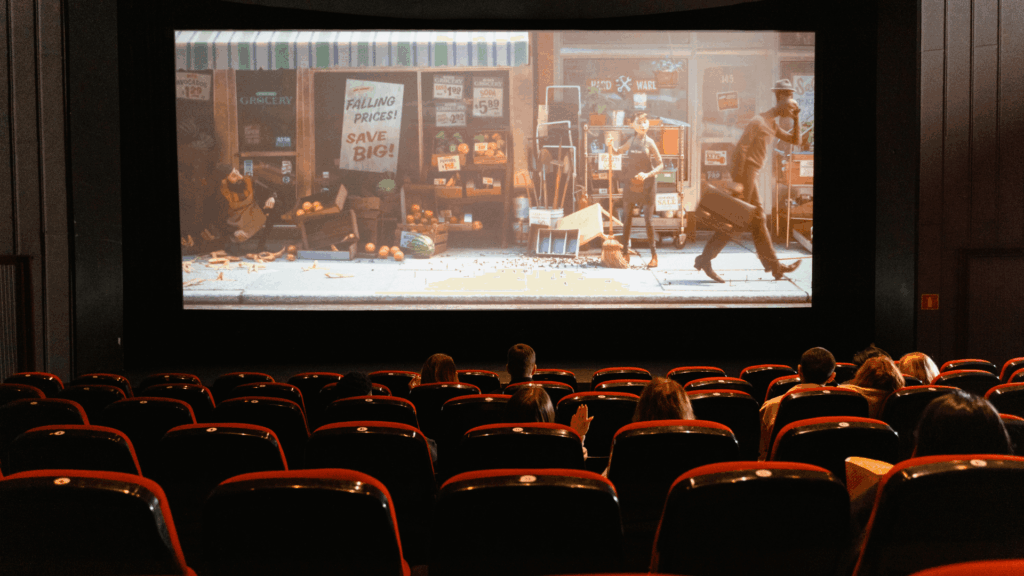Ticketing & Revenue Management: when bad timing gets expensive
Plummeting prices, empty stadiums, ticketing panic… What if the real problem was timing? At Revbell,...
See more
The cinema industry is no exception when it comes to dynamic pricing. However, unlike other ticketing sectors, variable pricing based on demand is struggling to gain traction.
Boxoffice Pro interviewed Jean-Marie Dura, consultant at NXNW Management & Conseils, about dynamic pricing in the cinema industry. Unlike other ticketing sectors, dynamic pricing, and more generally yield management, has not lived up to its promise.
The author cites EasyCinema, a subsidiary of EasyJet, which failed in its attempt to implement yield management in England in the early 2000s. The argument is as follows: when it comes to cinema, regardless of the debate surrounding ticket prices, « what matters most is the viewer’s desire to see a film. And viewers who are determined to see a particular film are not going to wait for a price change ».
A sound Revenue Management practice goes far beyond implementing dynamic pricing. We don’t actually know how it was tested in the cinema mentioned, as there are countless ways to approach the topic. In most cases, failure lies more in the execution than in the concept itself.
Moreover, dynamic pricing is only one of the levers of Revenue Management, it’s far from the only one. Other optimization approaches, both in Yield Management and Pricing, are applied across many ticketing sectors: from leisure parks to theatres, from museums to monuments, from football stadiums to major sporting events like the Olympics. These include seasonal pricing, seat categorization and seat selection, subscription models, sales channel management, packaged pricing based on products and services offered, diversified price types, early booking, segmentation (child, family, senior), discounts based on the number of tickets purchased, and more. Beyond the demand estimated for a given cinema, exhibitors also have access to advanced market statistics (box office entries) that allow for more accurate demand forecasting for a specific product.
There are numerous levers, they don’t all apply in the same way or with the same intensity. In the cinema sector, differentiating prices between the box office and online booking, offering lower fares for morning sessions or for children, already qualifies as Revenue Management. For example, Gaumont practices seat categorization (central seats, double seats) and advance purchase pricing, as seen at Gaumont Val d’Europe.
In any case, the idea is not to copy and paste ready-made recipes from the airline industry (and EasyJet in particular), as if Revenue Management were a universal discipline that could be applied identically across all sectors. As we well know, RM must be adapted to its environment. It has to take into account each industry’s specific characteristics, operational constraints, market acceptance levels, customer typology and purchasing behavior.
Across the broad ticketing market, we’ve applied RM and pricing levers in very different ways in karaoke venues, theme parks, theatres (Théâtre Mogador), sports clubs (OGC Nice), bowling centers (Bowling Plaza Company), museums (Musée Grévin), and cultural monuments. Depending on the context, we’ve proposed both expanded and simplified pricing structures. Sometimes price increases, often price reductions. Demand or offer segmentation. Pricing-driven levers or yield-driven levers. Dynamic pricing, but not always.
There is no magic formula, only core principles and their diverse applications. That’s the true art of RM. There is no reason why cinema shouldn’t find its own field of application. It is perfectly suited to Revenue Management: fixed capacity per auditorium, perishable inventory, variable demand, the ability to segment audiences and forecasting potential. (Notably, perishability applies not only to the offer – screening × film × date – but also to the « product over time » since the end of a movie’s theatrical run is rarely known to the spectator.)
In all leisure sectors, and even beyond ticketing, the desire for the product is always present. The argument that « what matters most is the spectator’s desire to see a film, and those who really want to discover a title won’t wait for a price variation » doesn’t hold up. The same applies to theatre, concerts, or football matches, yet all these sectors successfully practice Revenue Management, quite the opposite of avoiding it.
Cinema remains a leisure activity competing with many others. As in every industry, price is one factor among several. Services, hospitality, and auditorium comfort can be differentiating elements in the cinema offer, as the author points out, just as they are in ticketing, hospitality or transportation. Nothing groundbreaking here; these are simply well-known facts. Furthermore, the experience differs from one venue to another (screen size, space) and even from one screening to another (dubbed vs. original version). This already opens the door to marginal yet meaningful pricing differentiation.
There is, therefore, no reason for cinemas to remain the “exceptions” of Revenue Management or to stay on the sidelines of modern ticketing practices. We can apply the same methods here, as we have done successfully in over 25 different sectors. Many of them once claimed to be « too specific » to be concerned, and today they are delighted to have taken the leap.
Keywords: cinema revenue management, cinema yield management, cinema ticketing, pricing strategy, price optimization, customer experience, dynamic pricing, ticketing data, audience segmentation,…
Would you like to discuss pricing, customer experience or innovation in ticketing? Contact our experts to talk about it.
Plummeting prices, empty stadiums, ticketing panic… What if the real problem was timing? At Revbell,...
See moreIn 2021, faced with the challenges of occupancy and pricing flexibility, Théâtre Mogador has turned...
See moreBowling Plaza structures its Revenue Management with Revbell: data audit, actionable recommendations, and an ROI-focused...
See more